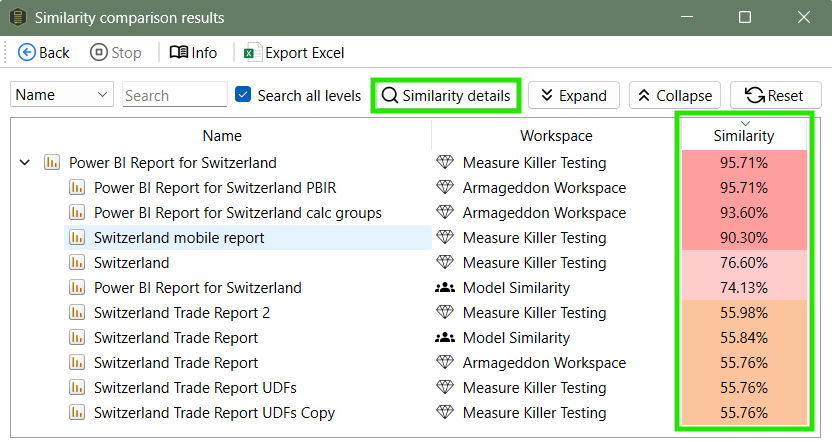New ways to analyze best practices in Power BI
- Klaus Folz
- Jul 17, 2024
- 2 min read
The latest version of Measure Killer (2.3.0) includes a great new feature:
Best Practice Analyzer.
This feature is available in all modes, including “Single report/dataset” and “Shared/golden dataset on local machine”, the free version of the tool. To check your model for best practices it’s simple: first run Measure Killer, then, in the main window’s click on “Best Practices”. The number between brackets indicates how many rules were violated.

Measure Killer will then analyze your Power BI model using a set of best practice rules derived from the Microsoft Power BI best practices repository (see here). This analysis includes a “violation score” calculation that will assign a verdict to your model (you can read more about this at the bottom of this page).

It is also very easy to check which objects (measures, columns, tables or relationships) are violating a specific rule, by simply using the expand button in each row, as shown in the image below

Conclusion
Measure Killer’s new best practices feature is an easy and fast way of making sure your Power BI models are optimized and following the best practices, which in turn will help you improve the performance of your reports. It’s also a good way to show the quality of the models or reports you are building.
Calculation details
The violation score is calculated based on the number of rule violations and their severity. Here’s how it works:
Violation Count: Counts the number of objects that violate each rule.
Violation Score: The product of the rule’s severity (1, 2 or 3) and the number of violations (severity * violations).
Total Violation Score: Sum of all violation scores for the model.
For example:
Rule A: Severity = 2, Violations = 3 → Violation Score = 2 * 3 = 6
Rule B: Severity = 3, Violations = 1 → Violation Score = 3 * 1 = 3
Total Violation Score = 6 + 3 = 9
Based on the total violation score, Measure Killer assigns a color and a verdict to indicate your model’s health:
Violation Score < 50: Green, Verdict: "Power BI Pro"
50 <= Violation Score <= 200: Light Green, Verdict: "Good"
201 <= Violation Score <= 400: Yellow, Verdict: "Ok"
401 <= Violation Score <= 600: Orange, Verdict: "Poor"
601 <= Violation Score < 800: Red, Verdict: "Awful"
Violation Score >= 800: Dark Red, Verdict: "Power BI Criminal"



Comments